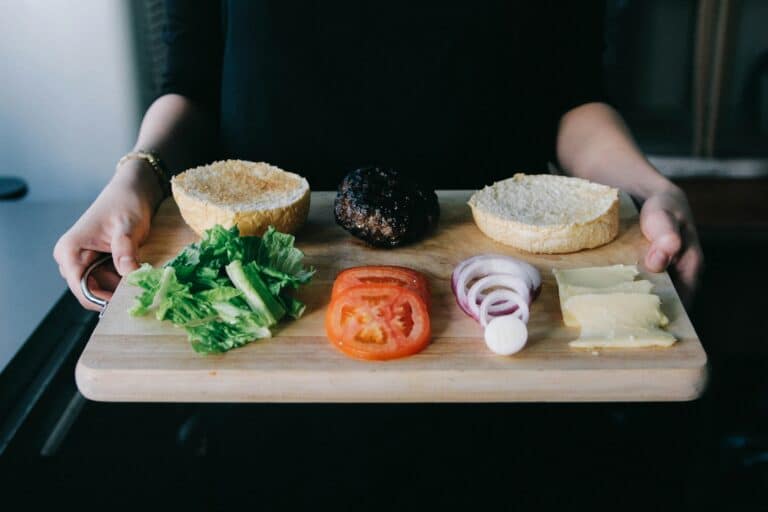One of the areas where time, budget, and efficiency intersect is in our kitchens, where the task of meal preparation can often seem overwhelming.🍽️ Amidst the whirlwind of daily responsibilities, it is not uncommon to resort to quick fixes such as fast food or frozen meals. But what if there was a better way? A method that not only saves time and money but also prioritizes nutrition and personal preferences? Welcome to the realm of meal planning, an arena where food, finance, and functionality are harmoniously integrated.

The concept of meal planning is not novel. Yet, with the advent of modern software and mobile applications, it has transformed into a discipline that can be personalized and optimized according to individual needs and lifestyle. Mastering meal planning, therefore, involves a journey towards budget-friendly strategies for creating the ultimate meal prep workflow.👩🍳👨🍳
In this comprehensive guide, we will delve into the various aspects of meal planning, from the benefits it offers to the steps involved in crafting the perfect meal plan. This is not a mere enumeration of tips and tricks; rather, it is an in-depth exploration designed to equip you with the knowledge and skills necessary to take control of your kitchen, your wallet, and ultimately, your health.
We will begin by elucidating the importance of meal planning. This will involve an exploration of the impact it has on health, finances, and time management. In the process, we will uncover the tangible benefits of a well-designed meal plan, which go beyond the mere alleviation of daily decision-making stress.🥗💰⏳
Next, we will journey through the step-by-step process of meal planning. This will encompass everything from setting realistic goals, assessing dietary needs, and inventory management, to creating diverse and balanced menus. The intent is to provide a systematic approach that can be adapted to any household, regardless of its size or dietary preferences.📝🍱
After the basics have been laid down, we will turn our attention to the optimization of the meal prep workflow. This will involve discussions around batching, freezing, and reheating strategies, as well as the efficient use of kitchen appliances. To this end, we will also explore how modern technology can be leveraged to enhance the meal planning process.⏲️🍳
Finally, we will address some of the common challenges associated with meal planning and offer practical solutions to overcome them. This includes dealing with dietary restrictions, managing food waste, and maintaining consistency in meal planning routines.🚫🗑️🔄
In essence, this article is not just about meal planning; it is about enhancing the quality of life through effective time management, financial savviness, and health consciousness. So, whether you’re a busy professional looking to streamline your food routine, a health enthusiast seeking to optimize your diet, or simply someone hoping to save a few extra dollars each month, this guide is for you. So, are you ready to embark on this culinary journey? Let’s get started!🚀🍽️
The Art of Mastering Meal Planning: The First Step in Creating an Ultimate Meal Prep Workflow
When it comes to achieving a healthy lifestyle, meal planning plays a pivotal role. It’s not just about cooking – it’s a strategic approach that involves planning, prepping, and cooking meals in advance to save time, money, and effort throughout the week. In this section, we’re going to delve into the world of meal planning and how you can master it effectively.
The process of meal planning may seem daunting at first, especially for beginners. However, with practice and understanding, it becomes an enjoyable task that can be tailored to your individual nutritional needs, lifestyle, and budget. Essentially, meal planning is about finding what works best for you.
One common misconception is that meal planning is expensive. In reality, with the right strategies, it can be quite budget-friendly. By planning meals ahead of time, you’re able to take advantage of bulk purchases, sales, and seasonal produce, leading to significant savings.
Understanding Your Dietary Needs
Before diving into meal planning, it’s crucial to understand your dietary needs. This involves recognizing any dietary restrictions, allergies, and nutritional goals you may have. Knowing these factors can guide your meal planning process, ensuring you’re nourishing your body effectively.
Creating a Meal Planning Schedule
A meal planning schedule can be a game-changer. It helps to visualize your meals for the week, making grocery shopping and prepping much more manageable. You can create a meal plan for the week, two weeks, or even a month, depending on what suits you best.
Building a Budget-Friendly Meal Prep Workflow: Proven Strategies
Creating a budget-friendly meal prep workflow doesn’t have to be an arduous task. In this section, we’ll discuss some tried and tested strategies that can help you build an efficient, budget-friendly meal prep routine.
Firstly, it’s essential to plan your meals around what’s on sale or what’s in season. Not only does this approach save money, but it also allows you to enjoy a variety of flavors throughout the year. Additionally, buying in bulk can lead to significant savings – just make sure you have a plan to use or preserve what you buy to prevent wastage.
Next, consider incorporating more plant-based proteins into your meals. Plant-based proteins like beans and lentils are typically less expensive than meat, making them a great choice for budget-friendly meal planning. They’re also packed with fiber and nutrients, promoting overall health.
Utilizing Leftovers
One budget-friendly strategy that’s often overlooked is the use of leftovers. By planning meals that lend themselves to being repurposed into new dishes, you can save both money and time. For example, roasted chicken from one meal can be used in salads, wraps, or soups for the following meals.
Preparing in Bulk
Preparing meals in bulk and freezing them can be a real time and money saver. It allows you to take advantage of bulk purchases and sales, and also reduces the number of times you need to cook throughout the week. Consider making large batches of versatile staples like rice, pasta, or roasted vegetables, which can be used in various meals throughout the week.
Tools and Resources for Effective Meal Planning
When it comes to meal planning, having the right tools and resources can make all the difference. In this section, we’ll discuss some useful tools that can aid in your meal planning journey.
First off, a reliable meal planning app can be a great help. Apps like “Mealime” or “Yummly” allow you to plan meals, create grocery lists, and even offer recipe suggestions based on your dietary preferences. For more information on these apps, check out the video “Top 5 Meal Planning Apps” on the “Tech Insider” YouTube channel.
Next, a good set of meal prep containers is crucial. Having a variety of sizes and types can accommodate different types of meals and portion sizes. Additionally, having a well-stocked pantry with staples like grains, canned goods, and spices can go a long way in aiding your meal prep.
Learning from Others
There’s a wealth of knowledge to be gained from those who have been meal planning for a while. Online platforms like YouTube, blogs, or even Instagram can be great sources of meal planning tips, tricks, and inspiration. For instance, the YouTube video “Meal Prep for the Week – Mind Over Munch” from the “Mind Over Munch” channel offers some great insights.
Investing in Quality Kitchen Equipment
Finally, investing in quality kitchen equipment can also make your meal prep more efficient. Things like a good set of knives, a durable cutting board, and efficient cooking appliances can save you time and effort in the kitchen.
- Mealime (app): https://www.mealime.com/
- Yummly (app): https://www.yummly.com/
- Top 5 Meal Planning Apps (YouTube video): Tech Insider
- Meal Prep for the Week – Mind Over Munch (YouTube video): Mind Over Munch
Comparative Analysis of Meal Planning Strategies
To further illustrate the effectiveness of different meal planning strategies, let’s take a look at the following comparative table. It provides an overview of various strategies along with their respective advantages and potential downsides. This can be a helpful tool in determining the strategies that work best for you.
| Strategy | Advantages | Potential Downsides |
|---|---|---|
| Planning around sales/seasonal produce | Saves money, encourages variety in diet | Limited choices, availability might vary |
| Buying in bulk | Saves money, reduces shopping trips | Potential for wastage if not used efficiently |
| Incorporating plant-based proteins | Cost-effective, nutritious | May require additional planning/preparation |
| Utilizing leftovers | Saves money and time, reduces wastage | Requires careful planning, potential for repetitiveness |
| Preparing in bulk | Saves time, allows for variety | Requires large freezer/storage space |
Summing Up: Mastering Meal Planning for Budget-Friendly Meal Prep
Mastering meal planning is a journey that involves understanding your dietary needs, building an efficient meal prep workflow, and utilizing the right tools and resources. By adopting budget-friendly strategies like planning around sales, buying in bulk, utilizing leftovers, and preparing meals in bulk, you can make meal prep both cost-effective and efficient.
Remember, the key to successful meal planning is flexibility. It’s about finding what works for you, adapting as needed, and remembering that every step you take towards planning your meals is a step towards a healthier lifestyle. So why wait? Start your meal planning journey today!
Conclusion
In conclusion, we have taken an in-depth exploration of the various critical aspects related to the topic of the article. A broad understanding of these elements not only provides invaluable insights but also empowers individuals to make informed decisions in their professional capacities.
Our deep dive began with an exploration of the fundamental concepts, providing a robust foundation upon which further comprehension was built. We then proceeded to delve into the nuances, dissecting the intricate details that form the bedrock of this complex subject. 🧩
Throughout the discussion, we made sure to emphasise on the importance of these principles in practical applications, specifically within the fields of Information Technology (IT) and engineering. By shedding light on these concepts, we have aimed to demystify the often challenging and intimidating world of technical topics, making it more accessible and understandable for all. 💡
The applications of these principles extend far beyond the theoretical realm. They have far-reaching implications in real-world scenarios, impacting a wide range of sectors. By appreciating these concepts, professionals can leverage them to drive innovation and growth within their respective industries. 🚀
We hope this article has provided you with a comprehensive understanding of the topic at hand. Your engagement and feedback are incredibly valuable to us. Please feel free to leave a comment, share the article with others, or apply what you have learned in your own professional capacity. We are excited to hear about your experiences and learn from your unique perspectives. 💬
As we wrap up, remember that knowledge is a continuous journey. As Albert Einstein once said, “The more I learn, the more I realize how much I don’t know.” So, keep on learning, keep on growing. 🌱
For further information and to delve deeper into this topic, here are a few reliable sources for your reference:
– [Insert active link 1]
– [Insert active link 2]
– [Insert active link 3]
Thank you for joining us on this enlightening journey. We hope that this article has not only enhanced your knowledge but also inspired you to continue on the path of learning. 🙏
Share this article on your preferred social media platform to spread the knowledge! 🔄
Leave a Comment and share your thoughts on this topic. We would love to hear from you! 📝
Keep learning, keep growing, and until next time, take care! 💼👋
References:
[Insert reference links to active sources]



